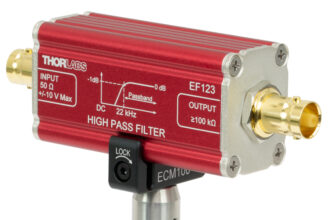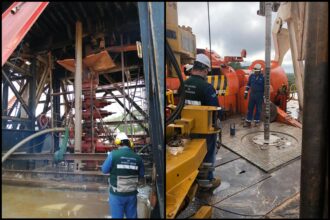Solar energy systems are only as reliable as the components that power them, and one of the most critical elements is the inverter. A solar inverter manufacturer plays a pivotal role in determining system performance, safety, and long-term reliability. Selecting an experienced and reputable manufacturer ensures that the inverters used in residential, commercial, or off-grid installations can efficiently convert solar power while protecting the system and connected loads. This choice also affects system scalability and adaptability to future energy needs.
Understanding the Importance of Solar Inverters
- What Inverters Do
They convert direct current from solar panels into alternating current that can be used by household appliances or commercial equipment. In more advanced setups, inverters also manage battery charging, interaction with the power grid, and distribution of electricity to different loads. Low-quality or poorly designed inverters can reduce system efficiency, damage batteries, and even create safety risks.
- Choosing the Right Inverter Type
Different solar applications need different types of inverters. Grid-tied systems require inverters that can synchronize with the utility supply. Off-grid systems need inverters that can manage energy storage and provide stable, uninterrupted power.
- Importance of Manufacturer Expertise
A manufacturer with experience in both design and production ensures the inverter is compatible with other system components, durable, and meets international safety standards. Good manufacturers also offer firmware updates and advanced monitoring tools, which help optimize performance and maintain the system over time.
Types of Inverters from Leading Manufacturers
Leading suppliers such as Felicity Solar provide various inverter solutions designed for diverse energy applications. Their range includes hybrid, multifunction, and off-grid inverters, each addressing specific power needs while ensuring stable and efficient performance.
- Hybrid Inverters
Hybrid inverters combine solar energy conversion with battery storage management. They allow for simultaneous solar charging, battery charging, and AC load supply. Felicity Solar’s hybrid inverters are designed to offer:
- High efficiency: Conversion rates up to 98%, minimizing energy loss
- Integrated energy management: Supports battery charging, solar input, and AC loads
- Scalability: Modular battery integration for expanding energy storage
- Smart monitoring: WiFi-enabled for remote access and real-time system management
These inverters are ideal for residential and small commercial setups, where energy independence, backup capabilities, and adaptability to future energy needs are essential.
- Multifunction Inverters
Multifunction inverters integrate multiple functions into a single compact device. For example, Felicity Solar’s multifunction inverter merges the capabilities of an inverter, solar charger, and battery charger, providing uninterrupted power support in a portable format. The system features a comprehensive LCD display and configurable buttons for operations such as AC/solar charging and battery management across different input voltages. Key technical features include:
- WiFi-enabled monitoring for mobile access
- Multifunctional integration of inverter, solar, and battery charging
- Maximum battery charge/discharge current of 200A
- Multifunction inverters simplify installation, reduce equipment footprint, and provide versatile solutions for diverse energy needs.
- Off-Grid Solar Inverters
Off-grid inverters are specifically designed for systems independent of the utility grid. They manage energy storage and distribution for remote locations or areas with unreliable grid access. Felicity Solar’s off-grid inverters feature:
- Robust battery management: Optimized for lithium-ion or LiFePO4 battery packs
- Uninterrupted power: Automatic load prioritization and backup supply
- High durability: Designed for long-term performance in harsh environments
- Monitoring capabilities: LCD interface for easy configuration and operation
By regulating battery charging, AC output, and load prioritization, these off-grid inverters ensure continuous and reliable energy supply even in isolated areas.Factors to Consider
When Choosing a Solar Inverter Manufacturer
Selecting a solar inverter manufacturer involves more than comparing price or capacity. Key considerations include:
- Product Reliability: High-quality components, strict testing, and compliance with international standards ensure long-term performance.
- Technical Expertise: Manufacturers with experience in hybrid, multifunction, and off-grid inverters can offer more adaptable solutions.
- Support and Documentation: Comprehensive manuals, firmware updates, and technical support are essential for proper installation and maintenance.
- Innovation:WiFi-enabled monitoring, LCD displays, and multifunction integration reflect a manufacturer’s ability to meet modern energy demands.
Benefits of Choosing the Right Manufacturer
Working with a reputable manufacturer has tangible advantages:
- System Efficiency: High-quality inverters maximize the energy harvested from solar panels。
- Safety: Reliable inverter design protects batteries, appliances, and users.
- Flexibility: Manufacturers offering hybrid and multifunction options allow future expansions or energy management upgrades.
- Longevity: Well-engineered products reduce the risk of early failure, ensuring longer operational life.
Conclusion
Selecting the right solar inverter manufacturer is essential for reliable, safe, and efficient solar power systems. Understanding hybrid, multifunction, and off-grid inverters helps designers, homeowners, and businesses choose suitable solutions. Manufacturers that combine technical expertise, innovation, and product quality provide the foundation for sustainable solar energy deployment, supporting both immediate performance and long-term energy strategy.
With a proven track record in developing versatile and efficient inverters, Felicity Solar demonstrates the type of expertise and reliability that can support a wide range of solar installations, helping users achieve consistent energy performance and long-term operational stability.

















